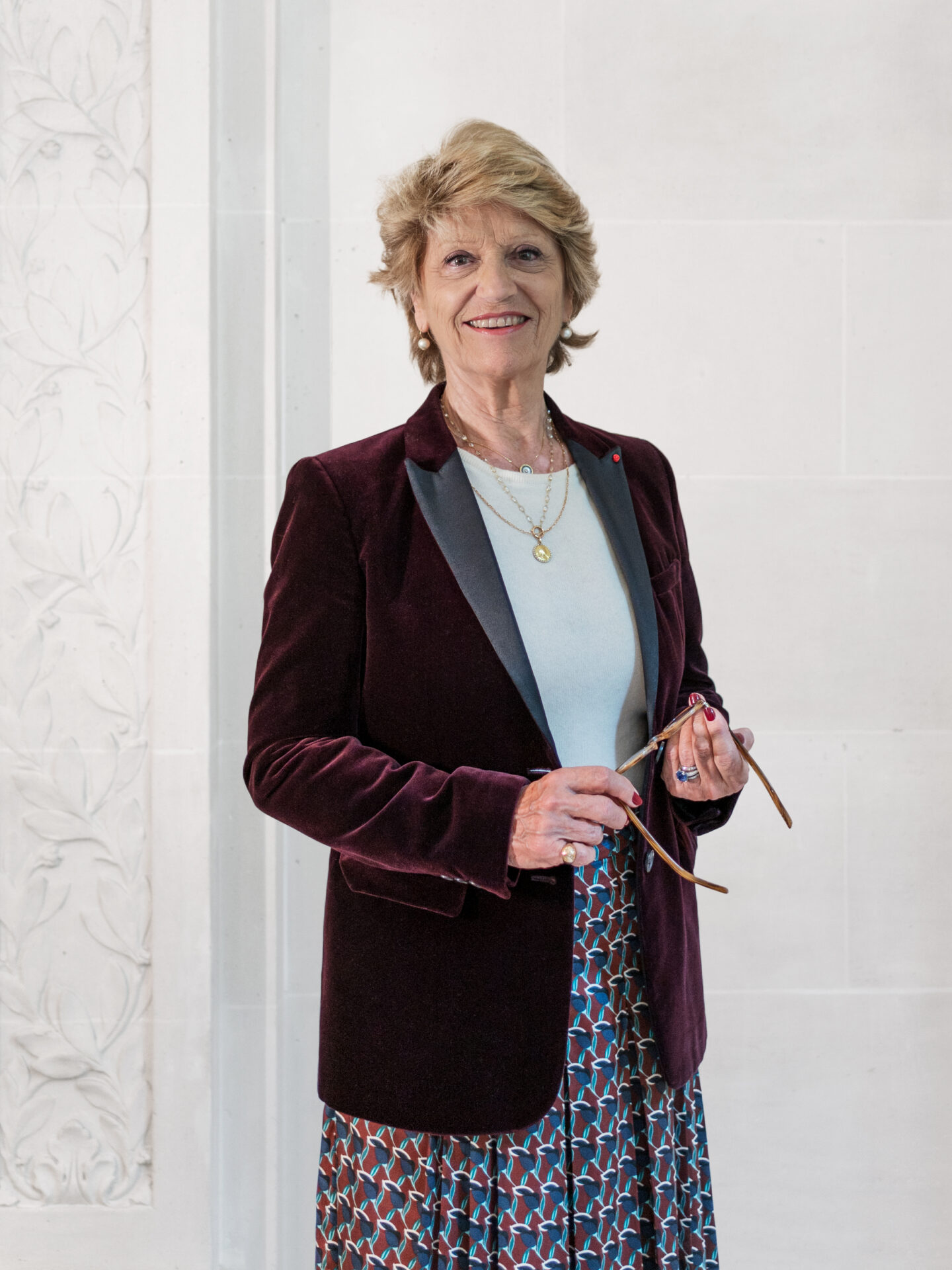Article published with the kind authorization of the Editorial Board of the Revue du Practeur May 2022, vol 72, n°5.
Summary
Until the decree of December 22, 2020, all advertising was prohibited for doctors. However, the case law was uncertain because of the difficulty in differentiating between “advertising” and “public information”. From now on, and to comply with European directives, communication to the public is authorized, in particular on the practitioner's website. However and fortunately, it is part of a strong code of ethics and certain prohibitions persist.
The decree of December 22, 2020 definitively breaks with the past and authorizes new methods of communicating medical information within a rigorous and ethical framework.
A strong principle irrigates the exercise of the medical art and its ethics: " Medicine should not be practiced as a business” (former article R. 4127-19 of the Public Health Code [CSP]).
« Health is not a commodity. The medical act cannot be considered as a commodity, a commodity exchanged against a counterpart, whatever it is writes the National Council of the College of Physicians (CNOM). As a corollary of this principle, advertising was, at all times, prohibited for doctors and information provided in the media should only be in the public interest and for educational and health purposes only, on the basis of confirmed data. , avoiding any advertising attitude (former articles R. 4127-13 and 19 of the CSP). The decree of December 22, 2020 modified the rules.
Before December 2020
Formal ban on advertising
Until then, the law excluded for the doctor the publicity on his exercise, his location, his image, his person, prohibiting him from making himself known. This prohibition covered all direct or indirect advertising processes (in particular signposting of access to its premises), the mentions which must appear in its prescriptions, in the directories for the use of the public and on its professional plate with strictly imposed dimensions. (25cm x 30cm).
A slight exception, article R.4127-82 of the CSP allowed doctors who set up or modify their practice to publish in the press " an advertisement without advertising character » ; the text and the methods of publication had to be communicated beforehand to the Departmental Council of the College of Physicians.
Random case law
These restrictions resulted in a vast jurisprudential debate lasting many years: the disciplinary jurisdictions had to apply themselves to differentiating between advertising et information, these two concepts not even being defined in the texts to be applied.
The questions raised in the disciplinary proceedings were very diverse:
Could a cardiologist send his colleagues and general practitioners a letter presenting the specificities of his practice? Could you tell your patients about the benefits of prescribed treatments and suggest that they buy the book the doctor wrote? Could a gynecologist remind his patients by mail to encourage them to have regular gynecological follow-up by coming to consult him? Was it legitimate to hand over your business card in all the hotels in the capital? Could a home emergency service display its logo and telephone number on its vehicles?
This resulted in long and often painful debates, mixing the worst and the excusable.
Several decisions of the National Disciplinary Chamber of the Order of Physicians went as far as the Council of State, which then ruled wisely on what it was possible to do or not to do. If disciplinary case law had thus constructed the principles to be applied, this praetorian law remained uncertain.
Define information and advertising
A report presented to the General Assembly of the National Council of the Order of Physicians on May 31, 1986, entitled " Medical information and advertisements », tried to define these 2 notions:
- « Medical information : communication to the public of acquired medical knowledge, consistent with the reality of the moment, intended by the information they provide to provoke reflection, to modify behavior. »
- « Advertising : particular presentation, advantageous, oriented, even misleading, of the information disseminated, intended as much to seduce as to convince; the will of advertising conveyed by the information aims to arouse attention, to arouse curiosity and desire in order to stimulate demand for a self-interested purpose. »
The Opinion of the Council of State of May 3, 2018, requested by the government for the preparation of the Decree of December 22, 2020, attempted a new definition of advertising: “ Any process by which a healthcare professional promotes to the public, for commercial purposes, his activity ". Surprisingly, the qualification “commercial” is mentioned there, whereas medical ethics rejects it.
The reversal of principles
The six decrees of December 22, 2020 reversed the principle of banning advertising for health professionals (dental surgeons, podiatrists-podiatrists, nurses, midwives, doctors and masseurs-physiotherapists).
These texts respond to the pressures of the European directives instituting the freedom of establishment and the provision of services as well as to the case law of the Court of Justice of the European Union (CJEU) which only accepted national legislation prohibiting the generally and absolutely any advertising relating to health care.
By decision of January 15, 2019 (n°19-D-01), the Competition Authority was the first to react, considering that in these matters, European law should take precedence over French restrictions. In a judgment of principle of November 6, 2019 (n°416948), the Council of State annulled the implicit refusal of the Minister of Health to repeal the ban on all advertising laid down by article R.4127-19 of the CSP .
Decree No. 2020-1662 of December 22, 2020 therefore repeals the ban on advertising for doctors. Free communication on their professional activity nevertheless remains firmly framed by ethical rules intended to protect patients and more generally public health. 11 articles of the Code of medical ethics have thus been modified, maintaining however the distinction between informing the public and advertising.
Public information
Article R. 4127-13 CSP
"When the doctor participates in an action to inform the public of an educational, scientific or health nature, whatever the means of dissemination, he only reports confirmed data, shows caution and is concerned about the repercussions of his remarks to the public.
It is not intended to profit from his intervention in the context of his professional activity, nor to benefit the organizations in which he exercises or to which he lends his support, nor to promote a cause that is not of general interest. ".
Tact and moderation in the service of the general interest
In its first paragraph, the guiding principle remains identical to that of the previous text: when he participates in actions to inform the public, the doctor must beware of any untimely declaration and be particularly careful, especially if his notoriety and his specialty immediately give credibility to his remarks. The data revealed must be “ confirmed data (in other words, data acquired by medical science). The doctor's concern must be not to worry or upset patients by revealing hypotheses or opinions that are strictly personal, controversial and not validated by the scientific community. The doctor must question the impact of his statements and intervene with consideration and without controversy. tact and measure may be advocated here, as they are with respect to fees. These principles are included in article R. 4127-19-1.II of the CSP for communications to the public or to health professionals on questions relating to the doctor's specialty or public health issues. Here again, the general interest takes precedence and caution must be omnipresent.
Bid Transparency
A novelty appears in the 2nd paragraph of the same article: information on links of interest and potential conflicts must be reported by the practitioner taking a position. He must not derive any personal benefit from his intervention in the media or on his website in particular; moreover, he must refrain from any communication which, in a hidden way, would benefit a person or an organization to which he lends his assistance, which remunerates him to do so, or with which he would have a link disturbing his complete independence. In this regard, the ethics and professional conduct section of the CNOM adds a lapidary formula in its recommendations and comments on the 2020 decree: “The links in question may be direct or indirect, of a material or moral nature, or even of an image. As soon as he has such links of interest, it is essential for the doctor to state them in the clearest and most unambiguous way, according to the most appropriate methods, depending on the information medium. ". Remember that the declaration of these links of interest becomes mandatory (article L.4113-13 CSP - "anti-gift" mechanism) when they concern the relationship of a doctor with a manufacturer or operator of health products or materials.
Advertising
Article R. 4127-19-1 CSP
- The doctor is free to communicate to the public, by any means, including on a website, information likely to contribute to the free choice of the practitioner by the patient, relating in particular to his professional skills and practices, his professional career and the conditions of its exercise. This communication complies with the provisions in force and the ethical obligations defined by this section. It is fair and honest, does not rely on third-party testimonials, is not based on comparisons with other doctors or establishments and does not encourage unnecessary recourse to acts of prevention or care. It does not undermine the dignity of the profession and does not mislead the public.
- The doctor may also, by any means, including on a website, communicate to the public or to health professionals, for educational or health purposes, scientifically substantiated information on questions relating to his discipline or health issues. public. It formulates this information with caution and moderation, respecting ethical obligations, and refrains from presenting as acquired data assumptions that have not yet been confirmed.
- The communications mentioned in this article take into account the recommendations issued by the National Council of the Order.
Ethics framework
Authorized from now on under the name of communication to the public, shouldn't this advertising first of all be an asset for the patient in his free choice rather than serve a commercial interest where the doctor makes his interest take precedence, by seeking above all to develop his customers and increase revenue?
Advertising is very clearly framed: it must comply with the strong rules of ethics, the Decree requiring that it be " loyal " and " honest “, as much as reliable. We find, in this, the first adjective already used for information " clear and appropriate" which must be given to the patient on his condition as part of the care provided to him (Article R.4127-35 CSP).
This is what the Order of Physicians wanted to frame by refusing that a single-member liberal practice company (SEL) be given the name of "centre" or "institute", that a teleconsultation offer become a simple " slot machine » without protection of the quality of the care delivered or even that reductions and fixed prices do not multiply the sessions of laser hair removal.
The new article R.4127-19-1. III of the CSP expressly targets the recommendations issued by the CNOM, genuine guidelines information likely to be brought to the attention of the public by doctors.
This new article excludes the fact that the doctor can call on " third party testimonials » : it is excluded to solicit the testimony of his patient who would endorse by his enthusiastic declaration the quality of the practitioner who took care of him. Such a request would undoubtedly depart from the dignity required by the medical art.
The case law of the National Disciplinary Chamber supported by that of the Council of State ensures that the dignity and probity of the doctor do not evaporate in the possibility that he now has of contributing to the potential patient choosing him by because of his skills, his entourage and his professional background.
Persistent bans
Certain practices remain prohibited. This is the case with comparative advertising, which excludes colleagues or other techniques; boasting and presenting care and interventions while minimizing risks and hazards; of "all success" and "all guaranteed", while their presentation is misleading and misleading.
Practitioners in the European Economic Area
Article R.4127-19-2 CSP requires that they " clearly and in advance inform patients and other recipients of their services of the acts they are authorized to perform”. Here again, clarity and honesty are required.
Use of physician's name and titles
Article R.4127-20 CSP
“The doctor must watch over the use that is made of his name, his capacity or his declarations.
He must not tolerate that the organizations, public or private, where he exercises or to which he lends his assistance use his name or his professional activity for commercial purposes.
Article R.4127-30-1 CSP
“The usurpation of titles, theuse of titles not authorized by the national council as well as all procedures intended to mislead the public on the value of its titles”.
Publicity or information implies that the doctor concerned is responsible for the use which is made of his name and his declarations.
If his declaration is voluntary, it is up to him to master it from start to finish and to apply himself to controlling the content. To blame it on an assistant, a journalist or a computer scientist will not be heard in the event of an accusation.
If, on the other hand, the quotation of his name or his remarks is involuntary (sometimes without his knowledge), distorted or presented in a detestable context, he must react as soon as he becomes aware of it: a registered letter with acknowledgment of receipt addressed to the author will be the best defense to a charge of unlawful advertising; immediate withdrawal must be requested or a right of reply exercised.
Similarly, the doctor may not allow himself to be used in commercial advertising to give credit to a health establishment, a manufacturer of medical devices or prostheses.
Fees and expenses: honesty and clarity imperative
The 1st paragraph of article R.4127-53 of the CSP recalls the principles for determining fees with " tact and measure », the necessary information for the patient on the costs relating to the services provided and on the amounts charged by the practitioner. It also specifies that an acknowledgment must be issued if requested.
This same article provides for the content of the publicity given to these questions in its 2nd paragraph:
Article R. 4127-53 CSP
[…] II. - The doctor complies with the provisions of Articles L. 1111-3-2 and L. 1111-3-3 with regard to informing the patient of the costs relating to his services and the conditions of reimbursement and exemption advance of these costs. He ensures that the patient is informed in advance of the amount of the fees. The doctor who presents his activity to the public, in particular on a website, must include information on the fees charged, the methods of payment accepted and the obligations imposed by law to allow access for any person to prevention or treatment. care without discrimination. The information must be clear, honest, precise and non-comparative. The physician must respond to any request for information or explanations regarding his fees or the cost of a treatment. […]
Details on the media of the information delivered to the public
The supports remain the same as before but are specified and illustrated in the new decrees.
Article R.41276-79 of the CSP describes the composition of prescriptions and other professional documents.
Article R.4127-80 of the CSP reserves the possibility of providing information in directories for public use and sets the content of this advertising, which may be identical to that of prescriptions. However, at the time of digital referencing, the 2nd paragraph specifies: " It is forbidden for the doctor to obtain, against payment or by any other means, a numerical referencing showing priority information concerning him in the results of a search carried out on the Internet”. The " Spam indexing is therefore in particular to be banned.
Article R.4127-81 of the CSP regulates the issue of the professional plate, the requirements of discretion but efficiency of which are maintained.
Article R.4127-82 of the CSP maintains the authorization for the doctor who sets up (or changes his practice) to broadcast an announcement according to the rules set by the CNOM, but the prior check is no longer required.
All the articles contained in the decree of December 22, 2020 add to the previous texts the systematic mention of the practitioner's website. The recommendations of the CNOM are clear on the information likely to be mentioned therein; physicians must refer to it in order to create and update their site.
Conclusion
Progress in line with societal changes, but well supervised
We can only be delighted with this positive vision provided by the decree of December 22, 2020. A necessary corollary of the opening of new modes of circulation of information in society, it nevertheless and fortunately retains the support and framework of strong ethics. The approach is thus realistic for the doctor, who can make himself better known and share his scientific experience, but also protective for the patient who is informed with respect and consideration.

Nathalie Boudet-Gizardin
Partner
Expert in health law and regulated professions (advice and litigation), she works in various fields: structuring the activity of health professionals, advice on the regulatory and ethical aspects of their activity, defense of health actors in complex litigation, corporate health, civil and disciplinary litigation of regulated professions.

Catherine Paley-Vincent
Partner
Recognized expert in health law, she intervenes in particular for the constitution and monitoring of structures between hospital and / or liberal health professionals, for the management of possible conflicts and their transactional, judicial or disciplinary consequences. The field of medical imaging is particularly familiar to him.
She advises pharmaceutical companies on medical devices, labeling and clinical trials.
She is regularly consulted on the application of ethics, in particular with regard to the regulation of professional orders of networks, advertising and the Internet used in the medical and veterinary world.




